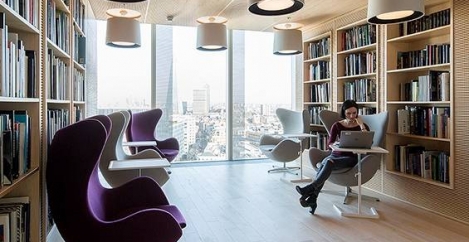September 13, 2016
The future of London depends on cohesion, flexible working and infrastructure 0
 The future of London is the subject of a new and wide ranging collection of essays from Think Tank Localis. It includes contributions from the likes of Boris Johnson, Terry Farrell, Peter Bazalgette and Justine Roberts. Its core theme is that while London has established itself as one of the world’s great financial and cultural powerhouses over the last thirty years, it now faces a number of new challenges and intransigent problems that it must address in a new globalised era. These have taken on a new perspective as the UK prepares to negotiate a new relationship with the EU, something which the report repeats was not the choice of Londoners, but which did perhaps reveal a neglect of the rest of the UK as the Government focused too much attention and investment on the capital. So, while the report focuses on London it also tries to create a vision of a London better integrated with the needs of the rest of the UK and based on a new partnership with the EU.
The future of London is the subject of a new and wide ranging collection of essays from Think Tank Localis. It includes contributions from the likes of Boris Johnson, Terry Farrell, Peter Bazalgette and Justine Roberts. Its core theme is that while London has established itself as one of the world’s great financial and cultural powerhouses over the last thirty years, it now faces a number of new challenges and intransigent problems that it must address in a new globalised era. These have taken on a new perspective as the UK prepares to negotiate a new relationship with the EU, something which the report repeats was not the choice of Londoners, but which did perhaps reveal a neglect of the rest of the UK as the Government focused too much attention and investment on the capital. So, while the report focuses on London it also tries to create a vision of a London better integrated with the needs of the rest of the UK and based on a new partnership with the EU.
From a workplace point of view, there is plenty to get your teeth into. Boris Johnson focuses on infrastructure and investment. Gillian Tett of the FT speaks up in favour of celebrating and maintaining the “infrastructure of talent’ particularly in London’s financial centres. Gerard Grech, CEO of Tech City UK makes the case for a similar pool of skills in London’s thriving technology sector and considers the implications of the sharing economy, coworking and the growth of new technologies such as autonomous transport systems, AI and Big Data. On a slightly related note Peter Hendy of Network Rail provides a comprehensive overview on the issues of transport and commuting while Professor Michael Arthur of UCL argues that there should be a greater focus on talent development and education to create an ‘innovation cluster’.
A section on ‘Living in London’ kicks off with Michael Liebrich of Bloomberg suggesting that the core challenge is to focus on quality of life and the environment while Terry Farrell argues that London needs to maintain its character in the new era and protect fundamentally human issues such as daylight and density, which is perhaps a not so subtle swipe at the proliferation of awful tall buildings in the city. Tellingly, Justine Roberts the Co-Founder and Chief Executive of Mumsnet, and so easily one of the most influential people in the report, argues that London in 2050 must have true and widespread flexible working. Although not exactly a panacea in the way some people suggest, there is no doubt that the greater uptake of flexible working will have a profound effect on many of the challenges and opportunities related to the future of London outlined in the collection.
Image: UBM offices London













